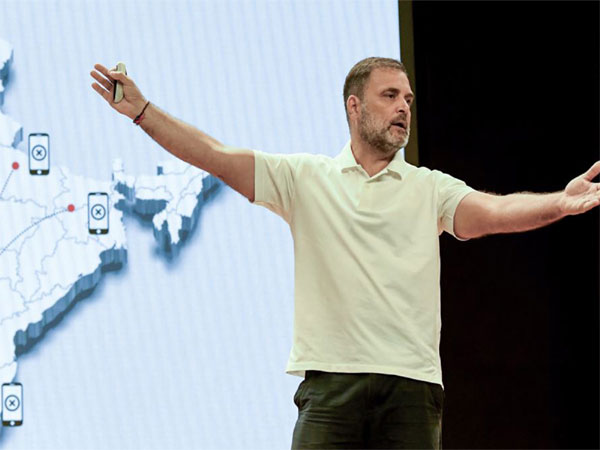Daijiworld Media Network - New Delhi
New Delhi, Sep 20: Leader of the Opposition in the Lok Sabha, Rahul Gandhi, on Saturday accused Prime Minister Narendra Modi of weakness in the face of the United States’ decision to impose a steep $100,000 annual fee on H-1B visas. The move, announced by the U.S. administration, is expected to hit Indian professionals the hardest, with 71 per cent of H-1B visa holders being from India.
Taking to social media platform X (formerly Twitter), Gandhi wrote, “I repeat, India has a weak PM,” and shared a news article detailing the impact of the fee hike. He also recirculated a 2017 post in which he had made the same allegation, attaching headlines such as “H-1B didn’t figure in Modi-Trump talks” and “MEA accepts U.S. use of ‘administered Kashmir’.”

Gandhi’s latest remark comes as part of a broader attack from the Congress party, which has argued that deteriorating ties between India and the US are the result of the Modi government's foreign policy failures. Congress MP Manoj Kumar told IANS that this was not the first such blow from the United States, referring to earlier tariff hikes. “On one hand, you say our Prime Minister is great and a good friend of Trump, and on the other hand, you're imposing such hefty fees on H-1B visas. Why is Trump doing this? He thinks he is a king. But in India, we will stand our ground,” he said.
Congress spokesperson Surendra Rajput also criticised the Modi-Trump relationship, stating that the U.S. continues to behave in a manner that undermines India, even while claiming to be a close ally. He listed three examples: the H-1B fee hike, the U.S. revoking the sanctions waiver for Iran’s Chabahar Port (a key strategic and trade route for India), and the imposition of 50 per cent tariffs on Indian goods. Rajput argued that symbolic gestures, like a birthday tweet from Trump to Modi, do not constitute a meaningful friendship.
Meanwhile, the U.S. proclamation introducing the new visa fee argued that the H-1B programme has been exploited to replace American workers with lower-paid foreign labor, which, it said, harms both economic and national security. Under the new rule, each H-1B application will now require a $100,000 annual fee — a dramatic increase from the current $1,700–$4,500 range.
Additionally, President Trump signed an executive order creating a “gold card” visa programme, allowing individuals to secure visas by paying $1 million and corporations by paying $2 million, a move seen as favouring wealthier applicants.
The H-1B visa programme, which is capped at 85,000 new visas annually, allows U.S. companies to hire skilled foreign workers in fields like technology and engineering. With Indian professionals dominating the programme, the decision is likely to impact both Indian workers and U.S.-based tech companies that rely on them.
The Indian government is currently in discussions with the Indian Embassy in Washington and industry body Nasscom to assess the fallout, even as the political opposition continues to press for a stronger diplomatic response.